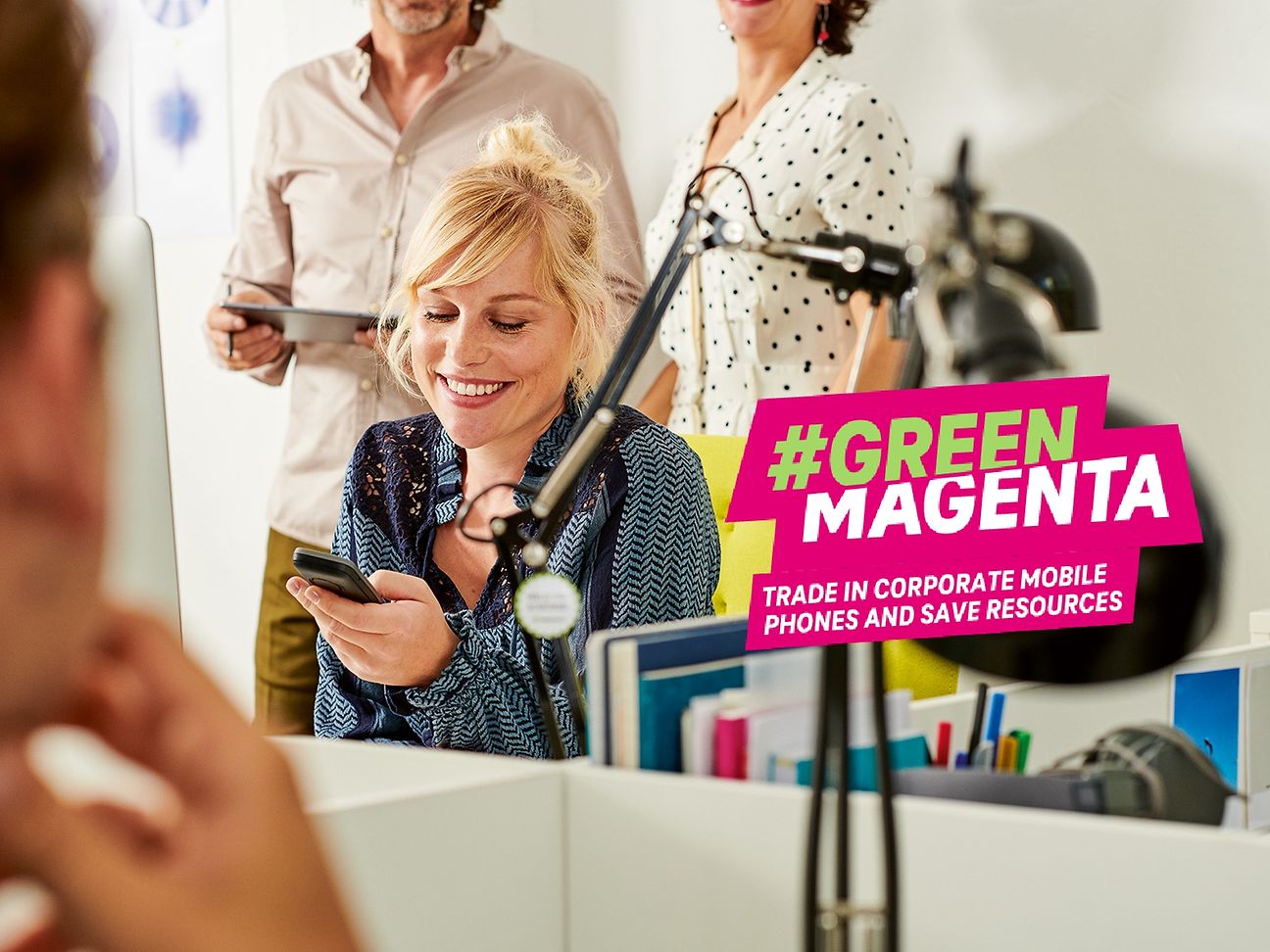Sustainability and climate neutrality: This is how Deutsche Telekom assumes responsibility
As a large enterprise, Deutsche Telekom is aware of its responsibility. That is why the issue of sustainability is a top priority for us. We help shape the present and the future and have already taken important steps in this respect: We support the Paris Agreement target of limiting global warming to less than 1.5 degrees Celsius and play our part in achieving this target through our own eco- and resource-friendly initiatives.
How Deutsche Telekom assumes responsibility for people and the planet
So future generations can inherit a habitable planet, Deutsche Telekom has set ambitious targets for sustainability and climate protection – and even tightened these further in 2021: Climate neutrality for in-house emissions should be achieved by the end of 2025. And we now aim to be entirely climate-neutral by as early as 2040 – ten years earlier than originally planned – along our entire value chain as well, in other words from production through to operation on the customer's premises. As a business, our goal is therefore to eliminate our CO2 footprint by 2040 at the latest.
This is what we have already achieved
We have already made important strides forward on the way to becoming a CO2-neutral enterprise: Since 2021, all Deutsche Telekom customers worldwide surf on a green network powered entirely by renewable energy. We are also developing and using increasingly sustainable packaging and materials for our products, use only electricity from renewable sources throughout the Group, and take back used devices through our closed-loop recycling scheme, refurbish them, and put them back into circulation.
Known as Green Pioneers, some 300 eco-conscious employees are taking part in an in-house ambassador program that devises additional eco-friendly measures to promote further responsible management and conduct. They share their experiences, organize workshops, and join forces to work on overarching projects. We also support the issue of sustainable mobility: The Deutsche Telekom subsidiary Comfort Charge installs and operates fast-charging stations for electric cars throughout Germany. With more than 240 locations, the subsidiary operates one of the largest fast-charging networks in Germany. Cars are charged entirely with electricity from renewable sources and help reduce CO2 emissions on the road. Two labels exist to give visibility to our initiatives for a more sustainable, more digital future: #GreenMagenta and #GoodMagenta help us demonstrate how we live up to our responsibility for the environment and society.
What lies behind the #GreenMagenta and #GoodMagenta labels?
The two labels #GreenMagenta and #GoodMagenta identify our own products, services, or initiatives that demonstrably offer one or more sustainability benefits. They illustrate what we do to make our world fairer and more sustainable. That way Deutsche Telekom not only meets its own aspirations, but also inspires others to do the same. The #GreenMagenta label identifies products, services, projects, actions, and initiatives that contribute positively to climate protection and to the responsible use of resources – such as the use of renewable energy and the recycling of used smartphones. #GoodMagenta identifies, in turn, projects, actions, and initiatives that contribute positively to social and societal challenges in the digital world. In this way, we are committed to delivering a more tolerant and secure network for everyone.
How does Deutsche Telekom make devices and packaging more sustainable?
To protect the climate and the environment and to use resources more responsibly, we are also specifically using increasingly eco-friendly materials for our devices along with sustainable packaging. The Speedport Smart 4 router and the Speed Home WLAN repeater, for instance, are made of recycled plastic. We use renewable raw materials for our packaging material, avoid plastic, and also take account of recyclability. Thanks to the sustainable closed-loop recycling of devices we also ensure longer, more eco-friendly use and environmentally sound recycling: Fixed-network telephones, smartphones, and other devices need not end up in the waste, but can be refurbished or recycled for further use in most cases. Every year Deutsche Telekom refurbishes around one million returned routers and takes back throughout Germany most cell phones for recycling.
What options does Deutsche Telekom offer for recycling and the sustainable use of smartphones?
Through our cooperation partner Handysammelcenter (German only) we provide collection points where customers can simply hand in cell phones and tablets they no longer use and have them recycled. Only recently, we also managed to extend the services for sustainable smartphone use: We give used smartphones a second chance. Regardless of whether they come from Deutsche Telekom or another provider. Customers can offer their old smartphone for resale. This substantially extends the life-cycle of devices and helps significantly save resources. With ReUse MyMobile anyone interested can purchase refurbished smartphones at an attractive price and can choose more eco-friendly alternative to a new device.


